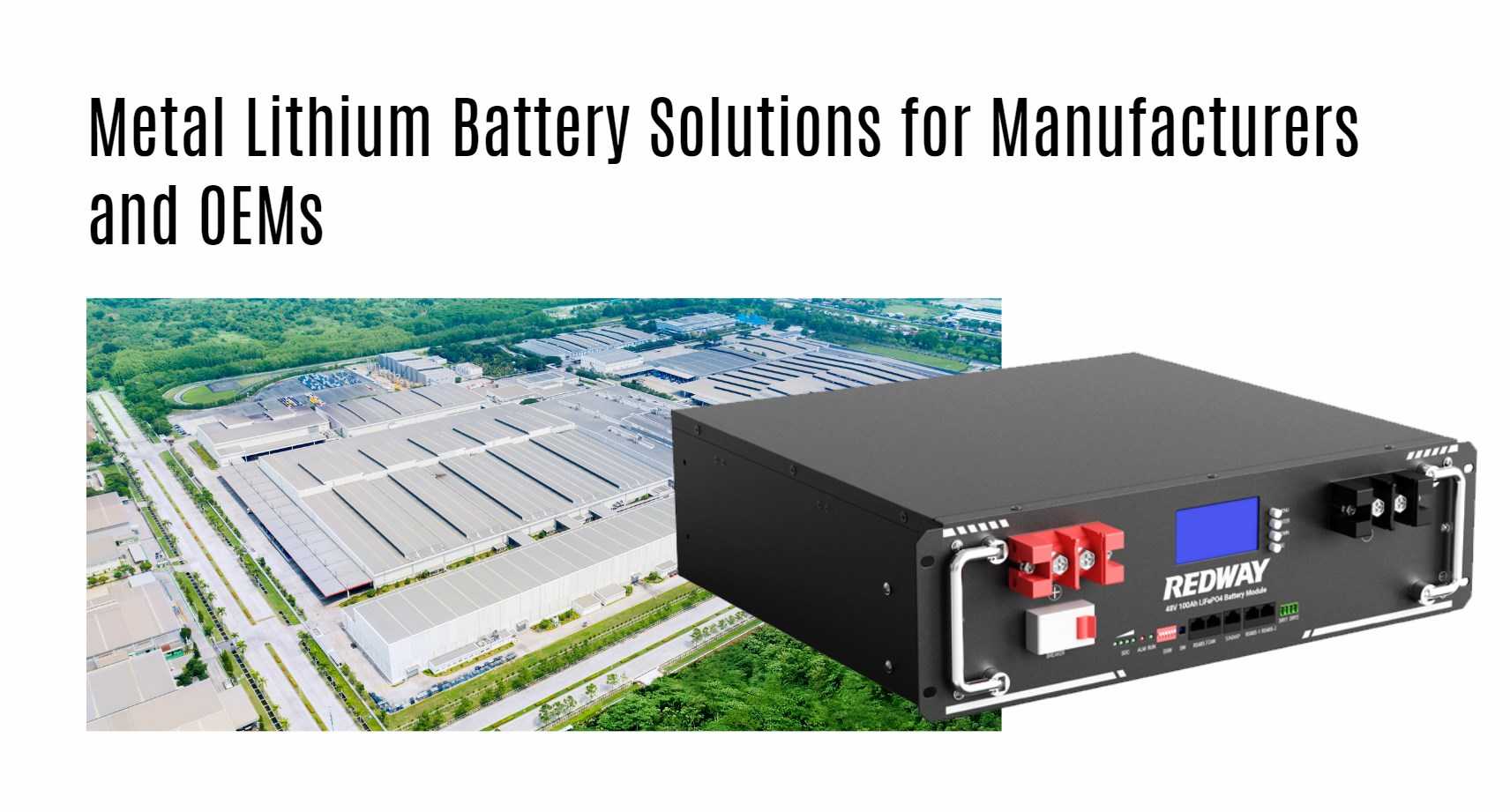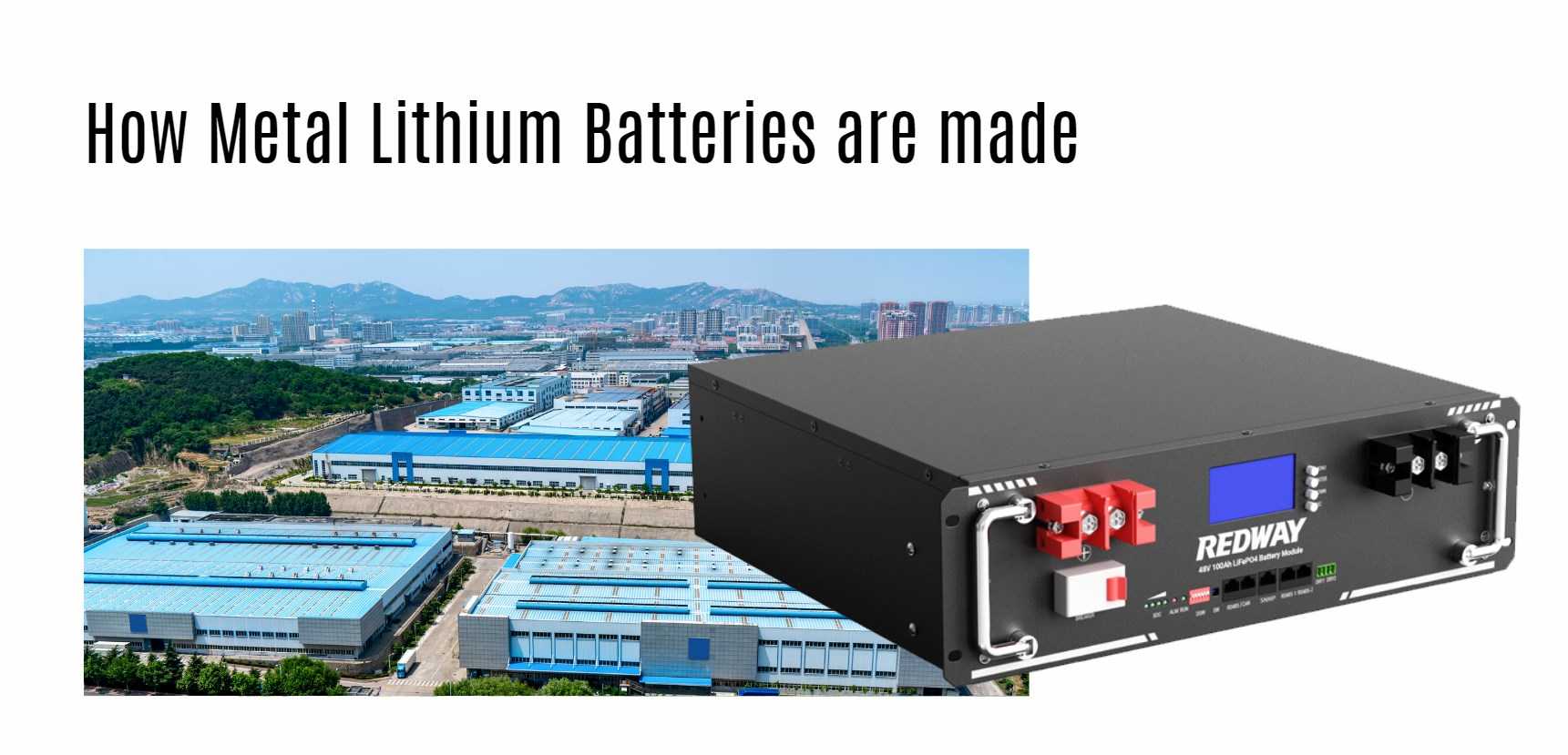Are you tired of your devices running out of battery quickly? Do you want a more efficient and longer-lasting power source for your products? Look no further than metal lithium batteries. As technology advances, so does the need for better battery solutions. Metal lithium batteries offer numerous benefits to manufacturers and OEMs, from increased energy density to improved safety features. In this blog post, we’ll explore how metal lithium batteries are made, their advantages over traditional battery technologies, and why they’re the future of energy storage. Let’s dive in!
Introducing Metal Lithium Batteries
Metal lithium batteries, also known as Li-metal batteries, are a type of rechargeable battery that utilize a pure lithium metal anode. This makes them distinct from traditional lithium-ion batteries, which use graphite or other materials for the anode.
One of the main benefits of metal lithium batteries is their high energy density. In fact, they have one of the highest energy densities of any battery technology currently available. This means they can store more energy in a smaller and lighter package than other types of batteries.
Wholesale lithium golf cart batteries with 10-year life? Check here.
Another advantage is their longer lifespan compared to traditional lithium-ion batteries. Metal lithium batteries can withstand more charge and discharge cycles before degrading over time, making them ideal for long-lasting applications such as electric vehicles and grid storage systems.
However, it’s important to note that there are still challenges associated with metal lithium battery technology. Safety concerns related to potential short circuits or overheating must be addressed through careful design and manufacturing processes.
Want OEM lithium forklift batteries at wholesale prices? Check here.
Metal lithium batteries have great potential for revolutionizing the way we store and use energy in our daily lives.
Benefits of Metal Lithium Batteries for Manufacturers and OEMs
Metal lithium batteries are becoming increasingly popular among manufacturers and OEMs due to their numerous benefits. One of the primary advantages is their high energy density, which means that they can store more energy in a smaller space than traditional batteries.
This makes them an ideal choice for devices that require long-lasting power, such as electric vehicles and mobile phones. Additionally, metal lithium batteries have a longer lifespan compared to other types of batteries, reducing the need for frequent replacements.
Another benefit of metal lithium batteries is their ability to charge quickly. This feature is particularly important for industries that rely on heavy machinery or equipment, where downtime can result in significant losses.
Furthermore, metal lithium batteries are environmentally friendly since they contain fewer toxic chemicals than other battery types. As sustainability becomes an increasingly important factor across all industries, this advantage has become even more crucial.
Metal Lithium Batteries offer manufacturers and OEMs with improved performance capabilities while also being efficient and economical. By choosing these innovative technologies over traditional ones results in increased productivity resulting from less maintenance time spent on replacing older formats with shorter life spans,.
How Metal Lithium Batteries are made
Metal lithium batteries are made up of several components that work together to produce energy. The first step in making these batteries is to create a cathode, which typically consists of lithium cobalt oxide or lithium iron phosphate.
The anode is then created using pure lithium metal, often coated with carbon to improve its performance. Both the cathode and anode are placed into a cell along with an electrolyte solution, which acts as a conductor for the flow of ions between them.
Once assembled, the battery must be charged before it can be used. During this process, lithium ions move from the cathode to the anode through the electrolyte solution, creating potential energy within the cell.
When power is needed, this process reverses and electrons flow from the anode through a circuit to power devices such as smartphones or electric vehicles.
Manufacturing metal lithium batteries requires precise engineering techniques and attention to detail throughout every stage of production. However, their ability to store more energy in less space makes them highly attractive for manufacturers and OEMs seeking powerful yet compact battery solutions.
Why Metal Lithium Batteries are the future of battery technology
Metal lithium batteries are poised to transform the future of battery technology. These batteries offer numerous benefits that have made them a popular choice for manufacturers and OEMs alike.
One major advantage of metal lithium batteries is their high energy density, which means they can store more energy in a smaller space than traditional battery technologies. This makes them an ideal choice for portable devices like smartphones and laptops where space is at a premium.
Another key benefit of metal lithium batteries is their long lifespan. They can last up to five times longer than other types of rechargeable batteries, making them cost-effective in the long run.
Moreover, metal lithium batteries are highly efficient and exhibit low self-discharge rates. This means that even when not in use, they retain their charge much better than other battery types.
Additionally, these batteries are environmentally friendly since they do not contain toxic heavy metals like lead or cadmium found in some older battery chemistries. As such, they pose fewer risks to human health and the environment compared to other forms of rechargeable cells.
Given all these advantages over conventional battery techs., it’s no surprise that metal Lithium-based Battery Solutions will continue to be the preferred option by leading electronics companies worldwide!
Conclusion
Metal lithium batteries are a game-changing technology that offers numerous benefits for manufacturers and OEMs. They offer high energy density, long life cycles, fast charging times, and improved safety features compared to traditional battery technologies. With the growing demand for electric vehicles and renewable energy storage systems, it’s clear that metal lithium batteries will play a significant role in shaping the future of battery technology.
Manufacturers and OEMs who adopt this cutting-edge technology early on will have a competitive advantage over those who stick with outdated battery solutions. By investing in research and development of metal lithium batteries today, businesses can position themselves as leaders in their industry tomorrow.
As we continue to make strides towards a more sustainable future, it’s crucial that we embrace innovative technologies like metal lithium batteries. With their unparalleled performance capabilities and significant environmental benefits, there’s no doubt that they’ll become an integral part of our daily lives sooner rather than later.







